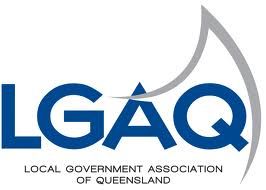Roads, disaster funding reform head up local council plan for federal election

Better funding for roads, a smarter approach to disaster management and a fairer go for Queensland in relation to the way federal money finds its way to local councils are among the policies that local government is calling on political parties to adopt as part of their federal election platforms.
The Local Government Association of Queensland’s 10 Point Federal Election Policy Plan also urges federal election candidates to ensure local councils receive better funding so the communities they represent are able to adequately adapt to the impact of climate change.
LGAQ President Margaret de Wit said the 10 Point Plan listed the policy changes affecting local government that should occur after the next federal election.
'This plan sets out a necessary and achievable policy platform for political parties to adopt in the run up to the 14 September federal election,' Cr De Wit said.
'It is all about making sure community needs in relation to the policy basics like roads and funding for local infrastructure are not forgotten in the heat of a federal election battle.'
She said whoever won the election would need to have a major rethink about the way so-called Financial Assistance Grants are distributed among the states.
'The current system distributes too little money and does not recognise Queensland’s unique infrastructure needs generated by rapid resource industry growth,' she said.
'Any government that clings to this outdated formula risks hindering national economic activity.'
She said the next Australian government should adopt as a priority an overhaul of the system of road funding, including making sure the vital Roads to Recovery program is made a permanent policy solution to address a projected shortfall in roads investment estimated at $1.2 billion over the next 15 years.
'So far, Roads to Recovery has delivered $3.5 billion in supplementary funding for the local roads network. It is fast, efficient and proven and should be made permanent,' she said.
On another crucial area of policy reform, disaster management, the Plan calls for greater funding certainty for communities hit by natural disasters.
'We need to get smarter about how we mitigate the impact of events like major flooding and cyclones as well as ensure there is an efficient system in place for the often huge task of reconstructing community infrastructure after disasters have passed,' Cr de Wit said.
She said the Gillard Government’s recent funding commitments for disaster mitigation were welcome but went nowhere near meeting the amount required to ensure communities were more resilient in the face of natural disasters.
'It is time to ask if handing out $1000 relief payments to people after the disaster has passed is the right approach by the Federal Government when upfront investment in infrastructure that offers better protection from floods, fires, heatwaves and cyclones might mean fewer victims,' she said.








 Print
Print